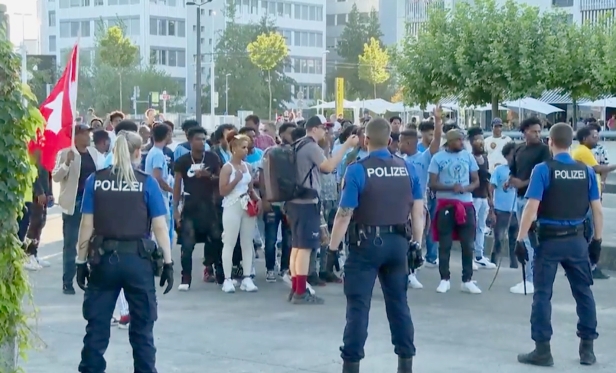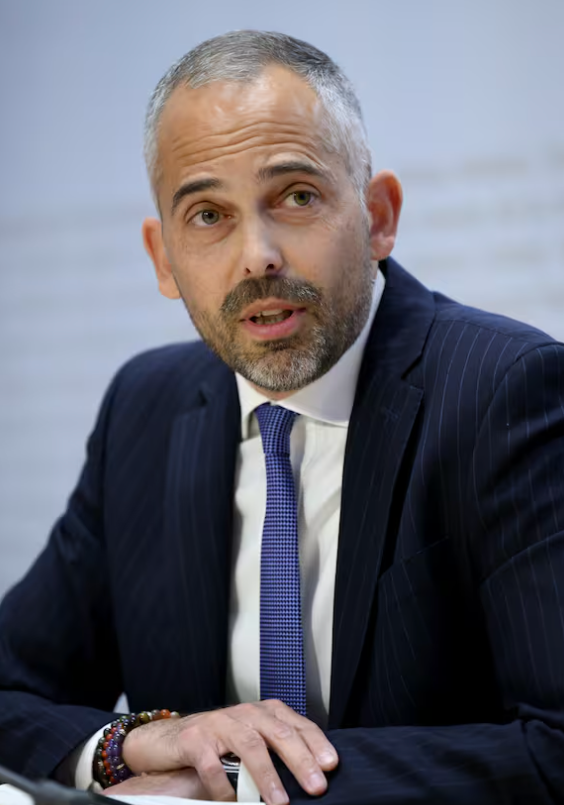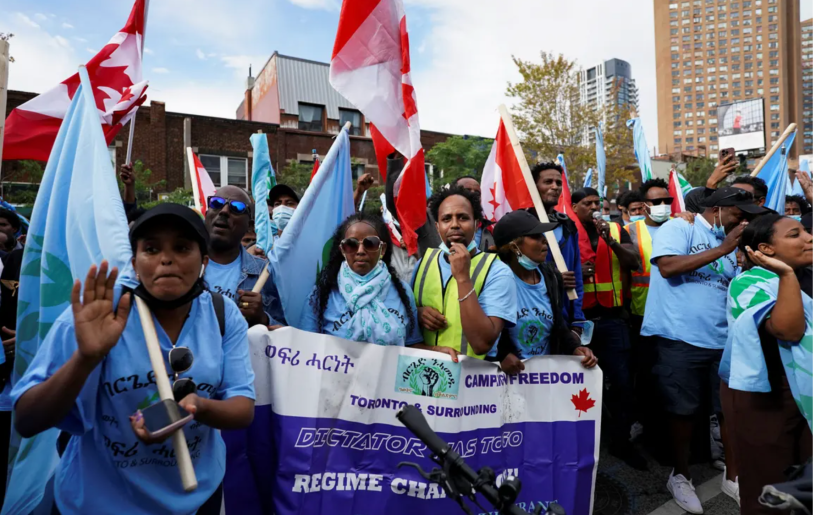A new working group is intended to ease tensions in the African exile community. The authorities are relying on dialogue – but also on repression.
Source: Blick By Fabian Eberhard Deputy Editor-in-Chief SonntagsBlick

Blue Revolution on the Bundesplatz: More than a thousand opponents of the regime from Eritrea demonstrated in Bern yesterday. “Stop the dictator!” chanted the activists of the “Blue Revolution” movement and called on Switzerland to ban propaganda events by supporters of the dictatorship in the Horn of Africa.
The police protected the march with a large contingent. The Eritrean community is seething: Recently, rival political groups have attacked each other several times, most recently in Gerlafingen SO , where around 200 opponents of the regime attacked a party of supporters of the Eritrean ruler Isaias Afewerki last April. The police used water cannon and tear gas, and there were injuries on all sides.
Federal Councillors involved
Behind the scenes, the authorities are working hard to defuse the situation. Federal President Viola Amherd (62) and Asylum Minister Beat Jans (59) are also involved.
The federal government has set up a working group with the aim of preventing further riots. The “Strategic Support Group Eritrea”, as the new task force is called within the agency, is to coordinate measures “to safeguard public security”.

The working group is based at the Swiss Security Network (SVS), which brings together representatives from the federal government, cantons and municipalities. The task force is headed by SVS delegate Martin von Muralt (49). He confirms: “The work is ongoing.” The advisory group will meet for the first time in July – with the involvement of all state actors.
According to von Muralt, a catalogue of measures is already in place, which is continually being updated but remains confidential for “strategic reasons”. According to insiders, it is a mixture of prevention and repression.
“The federal and cantonal authorities are working closely together to prevent violence and bring criminals to justice,” stresses von Muralt. However, freedom of assembly must be guaranteed.
Riots because of festival
The Eritrean diaspora is deeply divided. Riots between government loyalists and opposition members are a regular occurrence around the world. The violence usually erupts around so-called independence festivals held by supporters of the dictatorial regime in the capital Asmara. Opposition members who have fled abroad see the festivals as an affront. Many of them feel persecuted and spied on in Europe too.
“Eritrea is one of the issues that challenges me the most,” says Christine Schraner Burgener (60), head of the State Secretariat for Migration (SEM) in an interview with Blick. “We have made it clear to the two rival groups that we will not tolerate violent conflicts on Swiss soil.” She also “clearly communicated” this to the Eritrean ambassador.
Eritrea does not take back its compatriots
What else can the authorities do? It would be possible to deny or revoke refugee status to violent Eritreans. The Asylum Act allows this, for example if Switzerland’s internal or external security is at risk. The federal government is actually considering this option. However, since Eritrea refuses to cooperate with Switzerland, even then it is unlikely that those affected can be deported.
But the authorities also want to focus on dialogue, as internal documents show. The security network is aiming for a round table with representatives of the rival Eritrean groups. Nothing has been finalized yet, says von Muralt, but confirms: “The appropriate involvement of the Eritrean groups is part of the mandate of the strategic support group.”
“That’s not realistic”
Members of the Eritrean diaspora react to these ideas with scepticism. A leader of the regime critics told Blick that he was basically ready for dialogue, but he estimated the chances of resolving the conflict through a round table discussion to be vanishingly small: “That is simply not realistic.” The authorities should first take consistent action against propagandists of the regime and ban their events.
